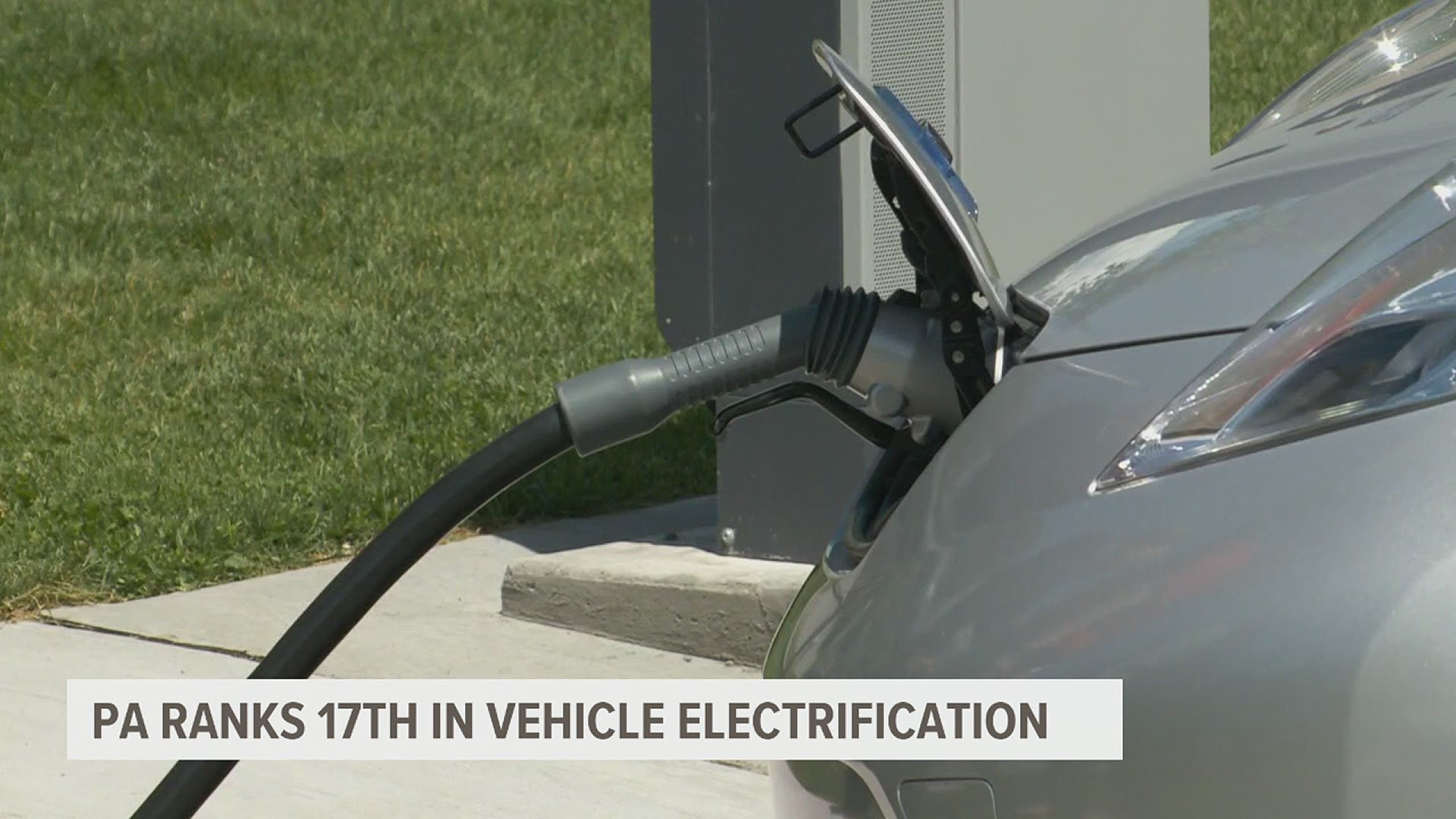HARRISBURG, Pa. — As electric vehicles become more advanced and take on a greater role in the auto market, a new study ranks Pennsylvania 17th out of 29 states in vehicle electrification efforts.
The study was released last week by the American Council for an Energy Efficient Economy (ACEEE), a nonprofit that advocates for energy efficiency policies.
It lauded Pennsylvania’s incentives for consumers to buy electric vehicles, such as offering a $750 rebate for purchasing a light-duty battery electric vehicle, plus an additional $1,000 for low-income buyers. More than 6,000 people have gotten the rebate since 2015. The pace of people redeeming the rebate is quickening, with 2,400 of those in 2019 alone.
Such incentives help lower the upfront costs of buying electric, according to the study.
Electric cars already save their buyers money over time, according to officials with the Pennsylvania Department of Environmental Protection’s energy programs office.
“Electric vehicles make sense in a lot of ways. They’re better for our air quality and improve people’s lives, but they’re even better from an economic standpoint,” said Colton Brown, the office’s electric vehicles specialist. “They cost less to fuel, they cost less to maintain.”
Sticker price is also likely to go down as auto makers accelerate production. GM recently pledged to make the vast majority of their vehicles electric by 2035.
The ACEEE study highlighted specific policy goals as an area where Pennsylvania could improve.
Pennsylvania does not currently have a set goal for electric vehicle sales, as some other states have done. A bill was considered in the Pennsylvania 2019-20 legislative session that would have required electric utilities to invest in charging infrastructure and establish an electric vehicle sales goal of at least 50 percent above market forecasts. A similar bill is expected to be considered in the 2021-22 session.
“It continues to struggle with the challenge of what the overall vision and mission is,” said Bryan Howard, ACEEE director of state policy. “The state has been involved in long-term planning efforts, milestones in the future that they're looking at, but they have not yet done that.”
The DEP is working with PennDOT to install charging stations every 50 miles along major highways, according to the 2021 Pennsylvania Electric Vehicle Roadmap.
The DEP has also launched an awareness campaign to educate the public on how much electric cars reduce carbon emissions.
Pennsylvania’s 12 million vehicles release 21 percent of carbon dioxide in the air statewide, contributing to climate change, according to the DEP.
Electric vehicles generate much less greenhouse gas, even including the power they require to charge.
“In Pennsylvania and most of the country you’re probably reducing your net emissions by two thirds to 75 percent,” Brown said.

